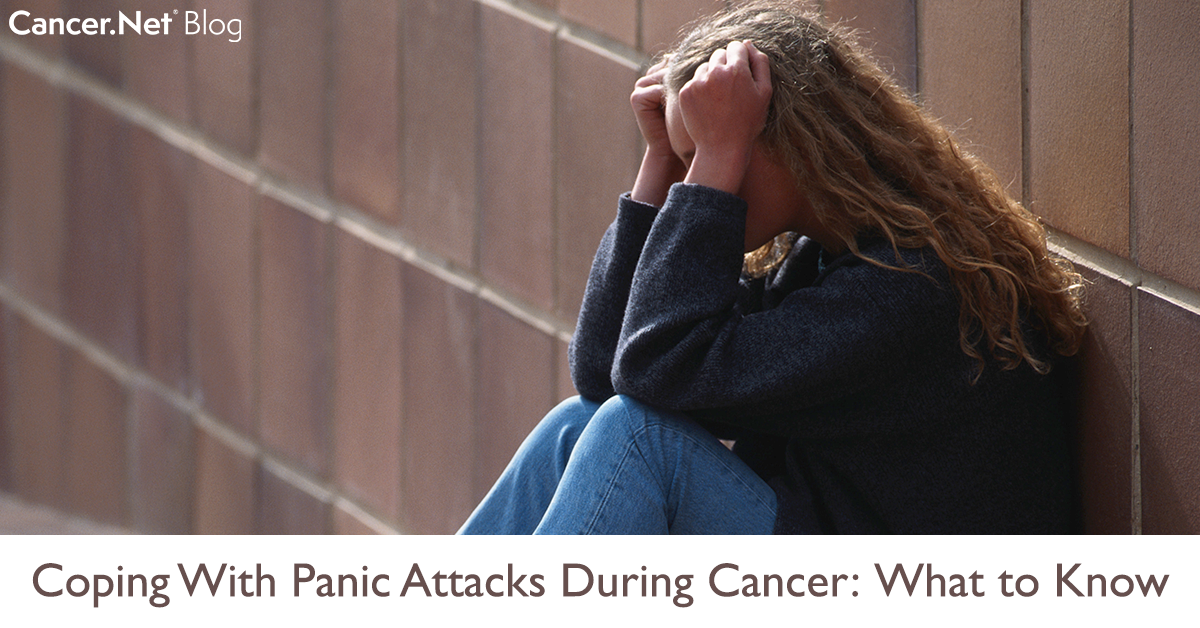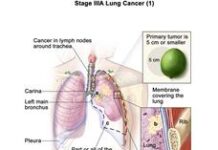
Fay J. Hlubocky, PhD, MA, is a licensed clinical health psychologist with expertise in psychosocial oncology and a health care ethicist at the University of Chicago Medicine in the Department of Medicine, Section of Hematology/Oncology, the Supportive Oncology Program, and the Maclean Center for Clinical Medical Ethics in Chicago, Illinois. Dr. Hlubocky is the 2022 Cancer.Net Associate Editor for Psychosocial Oncology. Dr. Hlubocky’s disclosure information can be found in her biography linked to above. You can follow Dr. Hlubocky on Twitter.
The experience of a cancer diagnosis can take an emotional toll. Many people with cancer will routinely question why feelings of panic, anxiety, uncertainty, or fear arise during their cancer experience. But these are natural responses to the most difficult news a person may receive in their life.
Coping with these emotions can vary from person to person. However, for some people with cancer, these feelings may become unmanageable and overwhelming, eventually impacting their overall well-being. Therefore, it is important to recognize when these complex emotions arise and to get help with coping right away. Seeking medical assistance early on is key. So, if feelings of anxiety are becoming difficult to manage, remember that all you need to do is ask your cancer care team for help. They are with you on this journey and are ready to help you address these emotions.
Here, we will examine why intense anxiety, specifically panic and panic attacks, can surface during cancer and what you can do about it.
What is anxiety?
Anxiety is a feeling of persistent worry and fear that develops as a response to a threat or an expectation of danger. For some people with cancer, their diagnosis itself may appear as a significant threat to their well-being. In fact, anxiety and anxiety disorders are a common experience for people with cancer. It occurs in 10% to 30% of people with cancer.
Anxiety may increase at different points during the cancer experience, including at the time of diagnosis, during treatment transitions, at the end of treatment, or during survivorship. Personal and work life stressors, such as parenting, career changes, changes in family roles, and unexpected financial burdens, may also contribute to anxiety during cancer. For some people, anxiety is a short-term experience. But for others, it may become a severe, unrelenting symptom requiring treatment. One example of intense anxiety is panic occurring as a panic attack.
What is a panic attack?
A panic attack is an intense, sudden episode of fear and anxiety that causes specific physical, cognitive, and emotional symptoms. Panic is an extreme form of the body’s alarm response, or “fight-or-flight” reaction, that alerts you of a threatening situation. This alarm response helps us in realistically dangerous circumstances, but for many of us, it can occur even in psychologically overwhelming situations. A specific event or medical stressor, such as being diagnosed with cancer or starting cancer treatment, may activate a panic attack. Panic attacks can be expected or unexpected and can occur anywhere at any time. They often happen without warning, leaving the individual in a state of distress.
Any person with cancer may experience panic attacks during cancer, especially those with a personal or family history of anxiety. Although panic attacks can be an uncomfortable, frightening experience, they are not dangerous or life-threatening. Yet, living in the constant fear of future attacks can become debilitating for some people, resulting in the avoidance of places or situations where they may occur. This can ultimately negatively impact treatment, work life, and personal relationships. Moreover, if left untreated, recurrent unexpected panic attacks may develop into a serious condition known as panic disorder.
What are the symptoms of a panic attack?
During a panic attack, some of the following symptoms may occur:
-
Shortness of breath
-
Pounding heart or rapid heartbeat
-
Chest pain
-
Dizziness
-
Headache
-
Nausea
-
Sweating
-
Trembling
-
Feeling detached from reality
-
Feeling a loss of control
Panic attack symptoms occur without warning, typically peaking within minutes of the start of the episode and then diminishing. Once the episode ends, feelings of dread, anxiety, and physical fatigue may linger. The experience differs for everyone, but for many people, the central fear of experiencing another panic attack stays with them.
What should I do if I experience a panic attack during cancer?
If you experience panic attack symptoms, seek medical attention right away. Panic attacks can look like symptoms of other medical conditions, including a heart attack, so it is vital to seek help and be evaluated by your doctor to determine the cause of your symptoms.
It is also important to be consistently screened for anxiety, and especially for panic attacks, early on by your cancer care team and throughout your cancer experience. This will help to identify and monitor your symptoms so your cancer care team can tailor treatment to meet your specific needs.
What can people with cancer do to prevent and relieve panic attacks?
The good news is that you can learn how to manage and cope with panic attacks during cancer. Regaining control is key, and directly confronting your fears is critical for healing. Over time, panic attacks can lessen in intensity with the help of effective tools and clinical expertise.
Evidence-based anxiety treatments specifically tailored for people with cancer will help you regain control by tackling your underlying fears and the intense anxiety that panic brings. You may be offered medication, such as anti-anxiety or antidepressant medications, or counseling, such as cognitive-behavioral therapy, group therapy, and/or biofeedback. Cognitive behavioral therapy helps you to learn how to manage the underlying stress you are experiencing by identifying and reframing anxiety-specific automatic thoughts. Biofeedback can teach you to relax and control your body’s response to stress by paying attention to signals from the body. For some, a combination of counseling with medication may be the best option.
Relaxation training, visualization, breathing retraining, mindfulness-based stress reduction, journaling, affirmations, and keeping a panic diary are all important tools to help you tackle the fear and anxiety associated with panic attacks. Adopting self-talk with “core beliefs” is another tool you can use to help promote a calm, accepting attitude toward yourself and your life. Your health care team can help you choose which tools are best suited for your anxiety.
If you are experiencing a panic attack, reminding yourself, “My symptoms are caused by anxiety,” will help you cope with an episode in the moment. Breathing exercises are especially useful if you experience rapid breathing during a panic attack. To slow your breath, close your eyes, breathe in slowly and deeply in through your nose, and then breathe out slowly from your mouth.
If you are currently receiving anxiety treatment, sticking with your treatment plan is crucial as you cope with cancer. If you are not yet receiving anxiety treatment, ask your cancer care team for a referral to psychosocial oncology care experts, such as social workers, psychologists, and psychiatrists. These professionals will help you identify the problem and guide you using the tools described above to address panic and prevent future attacks. If your cancer center does not offer psychosocial support services, several cancer community support services offer free online connections with clinical experts. Remember that help is available for you to tackle, let go of, and break free from panic.








